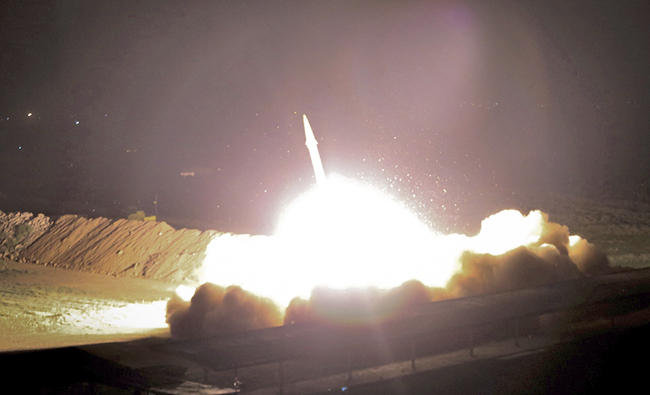Tel Aviv- Military sources in Tel Aviv confirmed on Tuesday that Iran’s ballistic missile strike against ISIS militants late on Sunday has failed, and that the majority of those missiles missed their targets.
The sources said that a salvo of ballistic missiles fired from Iran against ISIS positions in Syria, were not accurate and that the majority of them failed to land in the targeted positions.
According to the same sources, Iran launched four to five missiles from two different positions towards two positions in Deir Ezzor and Palmyra.
However, only one or two missiles hit the target.
But, according to Iranian sources, Tehran fired around six ground-to-ground Zulfiqar ballistic missiles with a range of 700 kilometers. Iran also said it later sent drones flying from near Damascus to Deir Ezzor to transmit footage of the missiles hitting their targets. The missile strikes came as a response to twin ISIS terror attacks in Iran on June 7.
Contrary to the Iranian reports that revealed Iran’s military capacity, the Israeli security sources said Tehran missed its targets.
The sources added that according to footages provided by the US Satellite, four of the Iranian missiles landed in Iraq and only two landed in its intended target in Syria’s Deir Ezzor province.
If those reports were later confirmed, then the first Iranian ballistic attack outside its own territory in 30 years would be a failure.
The missile strike also reveals one important weakness at the Iranian military level: Tehran’s warplanes fleet is old.
The Zulfiqar solid-fueled short-range ballistic missile (SRBM) belongs to the old groups of missiles, which have been present in the region for a long time. Those missiles include the Fateh-110 and the Fateh-313 family of SRBMs.
According to western sources, such types of missiles could have been also sent to Lebanon in the past few years.
Israeli military officials confirm that Zulfiqar missiles do not constitute a threat to Israel, unless launched from the Lebanese territories.
